Minvata "TechnoNIKOL": description and advantages of using the material
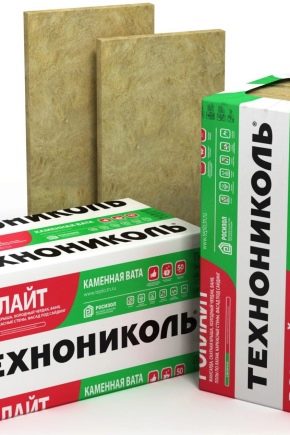
Mineral wool "TechnoNIKOL", produced by the Russian company of the same name, occupies one of the leading positions in the domestic market of thermal insulation materials. The company's products are in high demand among owners of private houses and summer cottages, as well as among professional builders.
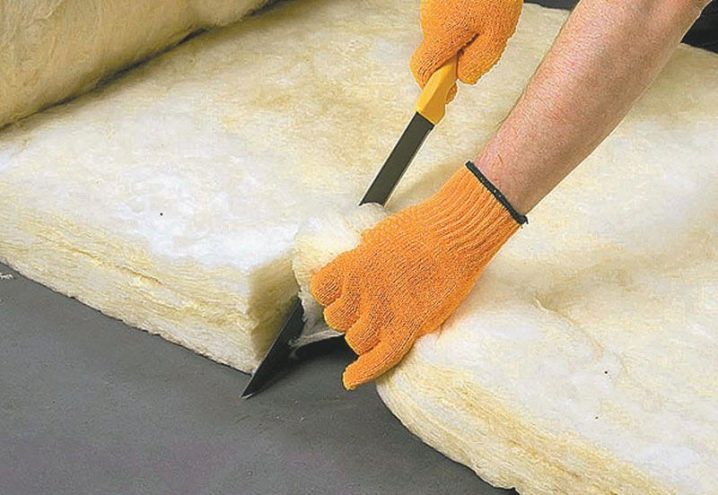
What it is?
Mineral wool "TechnoNICOL" is a material of fibrous structure, and depending on the raw materials used for its manufacture, it can be slag, glass or stone. The latter is produced on the basis of basalt, diabase and dolomite. The high thermal insulation qualities of mineral wool are due to the structure of the material and lie in the ability of the fibers to hold a significant volume of stationary air masses.
To increase the efficiency of heat saving, the plates are pasted over with thin laminated or reinforced foil.
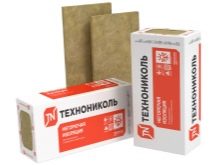
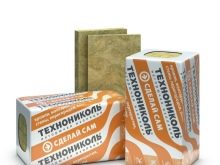
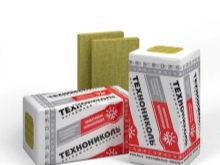
Mineral wool is produced in the form of soft, semi-soft and hard slabs with standard dimensions 1.2x0.6 and 1x0.5 m. The thickness of the material in this case varies from 40 to 250 mm. Each of the types of mineral wool has its own purpose and differs in the density and direction of the fibers. The most effective material is considered to be with a chaotic arrangement of threads.
All modifications are treated with a special hydrophobizing compound, which allows short-term wetting of the material and provides free drainage of moisture and condensate.
The moisture absorption of the boards is about 1.5% and depends on the rigidity and composition of the material, as well as on its performance characteristics. Plates are produced in one- and two-layer design, are easily cut with a knife, without breaking off or crumbling. The thermal conductivity of the material is in the range of 0.03-0.04 W / mK, the specific gravity is 30-180 kg / m3.
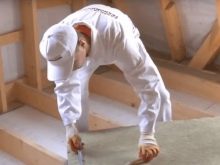
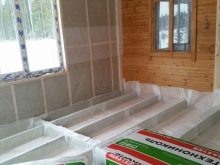
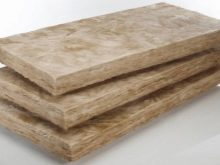
Two-layer models have the maximum density. Fire safety of the material corresponds to the class NG, allowing the slabs to withstand heating from 800 to 1000 degrees, without collapsing or deforming at the same time. The presence of organic compounds in the material does not exceed 2.5%, the compression level is 7%, and the degree of sound absorption depends on the purpose of the model, its technical characteristics and thickness.
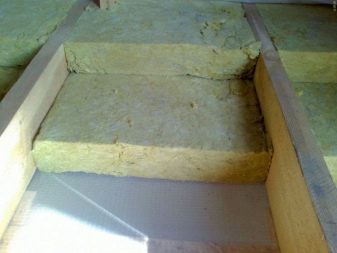
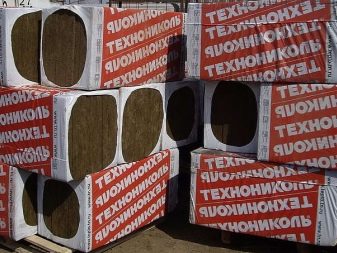
Advantages and disadvantages
High consumer demand and popularity of TechnoNICOL mineral wool are due to a number of indisputable advantages of this material.
- Low thermal conductivity and high heat-saving qualities. Thanks to their fibrous structure, the boards are able to act as a reliable barrier against airborne, impact and structure-borne noise, while providing high sound absorption and eliminating heat loss in the room. A slab with a density of 70-100 kg / m3 and a thickness of 50 cm is capable of absorbing up to 75% of external noise and is identical to brickwork one meter wide. The use of mineral wool allows you to reduce the cost of heating the room, which leads to significant cost savings.
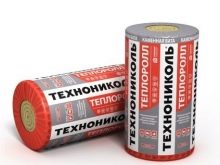
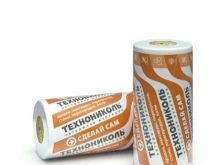
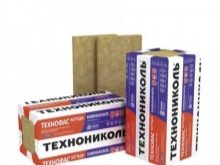
- High stability mineral slabs to extreme temperatures allows the material to be used in any climatic conditions without restrictions.
- Environmental Safety material.Minvata does not emit poisonous and toxic substances into the environment, and therefore can be used for both external and internal work.
- Minvata not of interest to rodents, resistant to mildew and immune to aggressive substances.
- Good indicators of vapor permeability and hydrophobicity provide normal air exchange and do not allow moisture to accumulate in the wall space. Due to this quality, the TechnoNIKOL mineral wool can be used to insulate wooden facades.
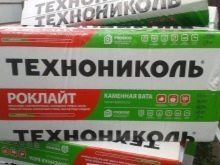
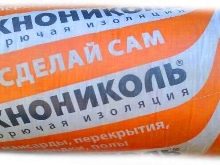
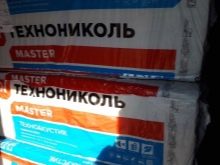
- Durability. The manufacturer guarantees from 50 to 100 years of impeccable service of the material while maintaining the working properties and original shape.
- Refractoriness. Minvata does not support combustion and does not ignite, which makes it possible to use it for the insulation of residential buildings, public buildings and warehouses with high fire safety requirements.
- Simple installation. Min-plates are cut well with a sharp knife, do not paint or break. The material is produced in sizes convenient for installation and calculation.
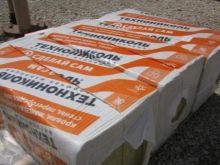
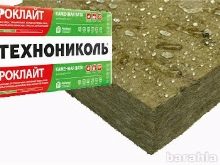
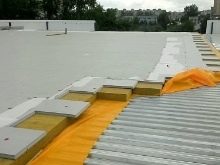
The disadvantages of TechnoNICOL mineral wool include increased dust formation of basalt models and their high cost. There is also a low compatibility with some types of mineral plaster and a general heterogeneity of the structure. Vapor permeability, despite a number of positive characteristics of this property, requires the installation of a vapor barrier. Another disadvantage is the impossibility of forming a seamless coating and the need to use personal protective equipment when installing insulation.
Types and characteristics
The assortment of TechnoNIKOL mineral wool is quite diverse and is able to satisfy the needs of even the most demanding consumer.

"Rocklight"
This type is characterized by low weight and standard dimensions of min-plates, as well as low formaldehyde and phenol content. Due to its durability, the material is widely used for insulating country houses and summer cottages., allowing for a long time not to worry about the repair of thermal insulation.
Plates are suitable for finishing vertical and inclined surfaces, can be used for insulation of the attic and attic. The material has excellent vibration resistance and is neutral to alkalis. The slabs are not of interest to rodents and insects and are not prone to fungus.
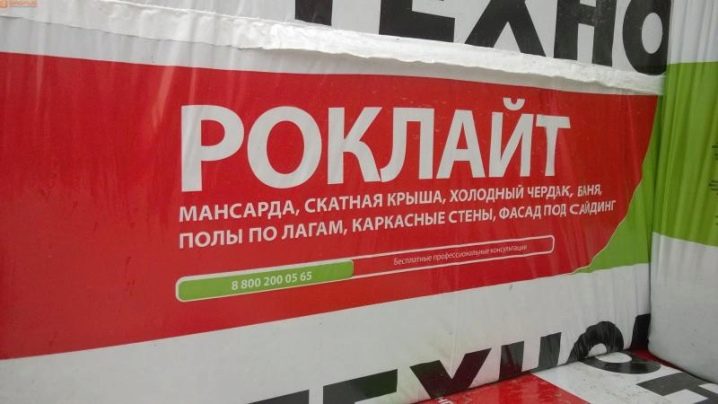
"Rocklight" is distinguished by high thermal resistance: a 12 cm thick layer of minelite is equivalent to a thick brick wall 70 cm wide. The insulation is not subject to deformation and creasing, and does not settle or swell during the freeze-thaw process.
The material has proven itself as a heat insulator for ventilated facades and houses with siding finishes. The density of the slabs ranges from 30 to 40 kg / m3.
"Technoblok"
Medium density basalt material used for installation on laminated masonry and framed walls. Recommended for use as an inner layer of a ventilated facade as part of a two-layer thermal insulation. The density of the material is from 40 to 50 kg / m3, which guarantees excellent sound and heat insulation properties of this type of board.
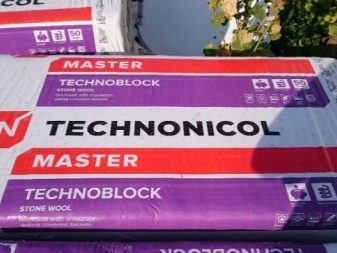
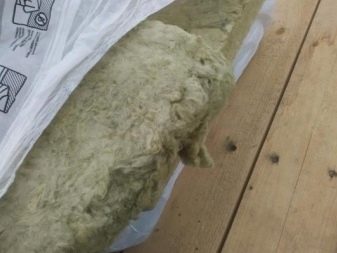
"Technoruf"
High-density mineral wool for insulating reinforced concrete floors and metal roofs. Sometimes it is used to insulate floors that are not equipped with a concrete screed. The slabs have a slight slope, which is necessary for the removal of moisture to the catchment areas, and are covered with fiberglass.
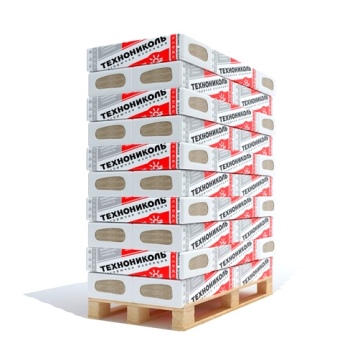
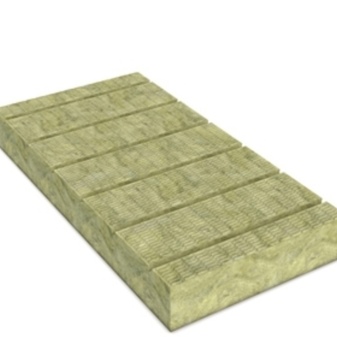
"Technovent"
Non-shrinking plate of increased rigidity, used for thermal insulation of ventilated external systems, as well as used as an intermediate layer in plastered facades.
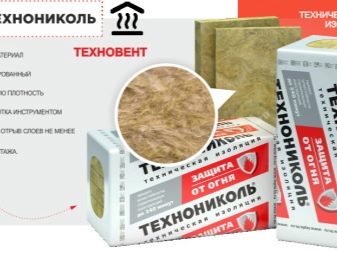
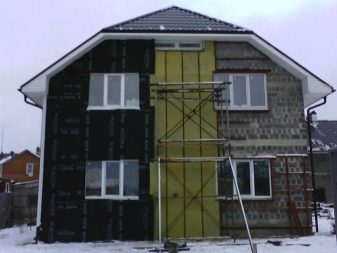
Technoflor
The material is intended for insulation of floors subjected to serious weight and vibration loads. Indispensable for the arrangement of gyms, production workshops and warehouses. The cement screed is then poured over the mineral slabs. The material has low moisture absorption and is often used in combination with the "warm floor" system.
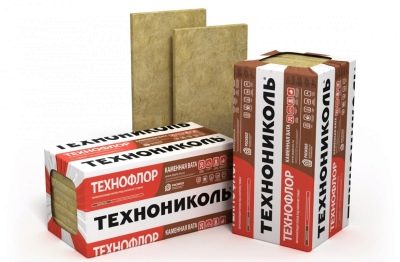
Technofas
Mineral wool used for external heat and sound insulation of brick and concrete walls for plastering.
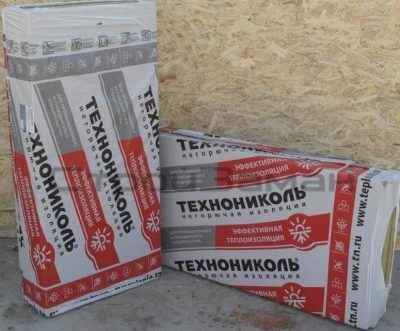
"Technoacoustic"
A distinctive feature of the material is the chaotic interlacing of the fibers, which gives it excellent sound insulation characteristics. Basalt slabs perfectly cope with air, impact and structural noise, absorbing sound and providing reliable acoustic protection of the room up to 60 dB. The material has a density of 38 to 45 kg / m3 and is used for interior decoration.
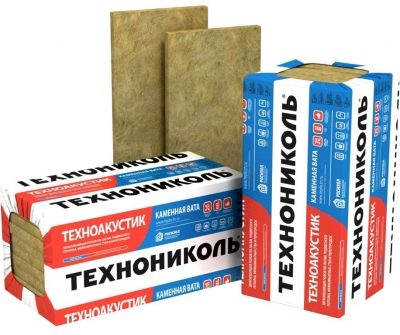
"Teploroll"
Roll material with high sound insulation properties and having a width of 50 to 120 cm, a thickness of 4 to 20 cm and a density of 35 kg / m3. It is used in the construction of private houses as a heat insulator for pitched roofs and floors.
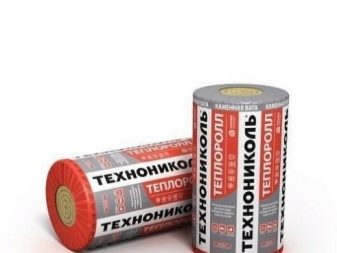
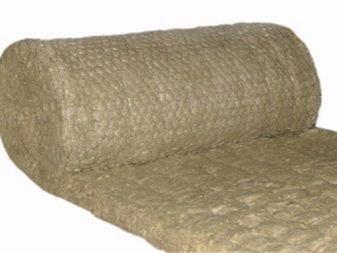
"Techno T"
The material has a narrow specialization and is used for thermal insulation of technological equipment. Plates have increased hardness and high thermal stability, which allows the mineral wool to freely withstand temperatures from minus 180 to plus 750 degrees. This allows you to isolate gas ducts, electrostatic precipitators and other engineering systems.
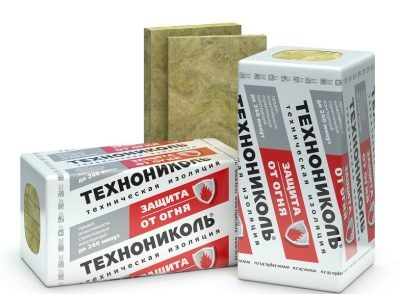
Where is it applied?
The scope of use of the material is quite wide and includes civil and industrial facilities under construction and already commissioned.
- Mineral wool "TechnoNICOL" can be used for pitched and mansard roofs, ventilated facades, attic and interfloor ceilings, in interior partitions and floors equipped with a water or electric heating system.
- Due to its excellent fire-resistant characteristics, the material is often used for insulating warehouses intended for storing flammable and flammable materials. The same quality makes it possible to lay mineral wool slabs as a sound insulator in the construction of residential buildings and public buildings.
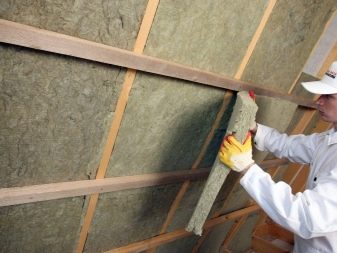
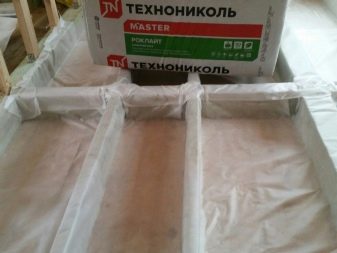
- The material is used for arranging soundproofing of apartments in multi-storey buildings, and also as an effective insulation in the construction of country cottages.
- Specialized types, designed for operation in extreme temperatures, are used to isolate engineering networks and communications.
A wide range of products is represented by one- and two-layer models, which are available both in roll and in the form of slabs. NSThis greatly facilitates the choice and makes it possible to purchase a modification that is convenient for installation.
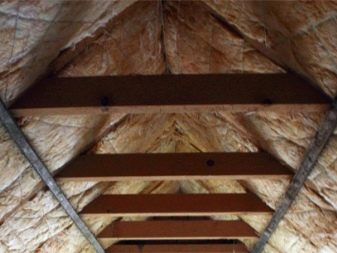
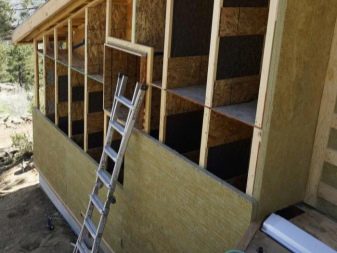
Feedback on use
Mineral wool of the TechnoNIKOL company is a popular heat and sound insulation material and has a large number of positive reviews. A long service life of the insulation is noted, which makes it possible not to replace the insulation for several decades.
Correctly laid mineslabs do not settle or wrinkle. This makes it possible to use it under plaster without fear of slipping of the finish and violation of the external integrity of the facade. Attention is drawn to the availability of convenient forms of release and optimal dimensions of the plates.
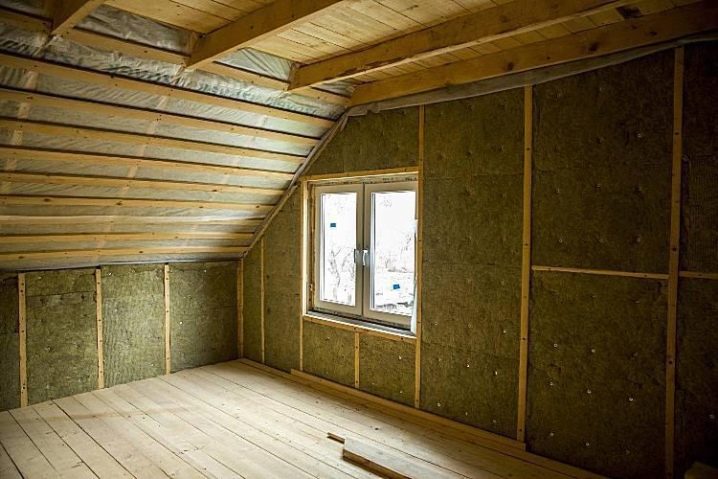
The disadvantages include the high price of all mineral products, including simple thin models. This is due to the complexity of the mineral wool production technology and the high cost of raw materials.
Mineral wool "TechnoNICOL" is an effective heat-insulating and noise-absorbing material of domestic production.
Complete environmental safety, fire resistance and high performance characteristics allow the use of the company's mineral products to form any insulation systems at all stages of finishing and construction.
See the video for a full review of Rocklight insulation.













The comment was sent successfully.